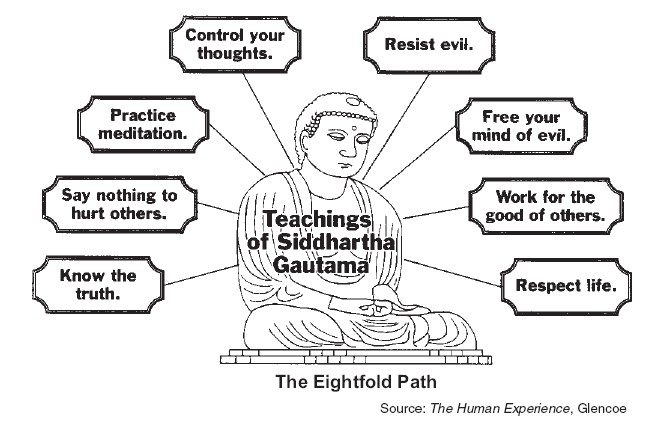Right speech
(samyag-vāc / sammā-vācā), deals with the way in which a Buddhist practitioner would best make use of their words. In the Pali Canon, it is explained thus:
And what is right speech? Abstaining from lying, from divisive speech, from abusive speech, and from idle chatter: This is called right speech.

The Samaññaphala Sutta, Kevatta Sutta and Cunda Kammaraputta Sutta elaborate:
Abandoning false speech... He speaks the truth, holds to the truth, is firm, reliable, no deceiver of the world...Abandoning divisive speech... What he has heard here he does not tell there to break those people apart from these people here...Thus reconciling those who have broken apart or cementing those who are united, he loves concord, delights in concord, enjoys concord, speaks things that create concord...Abandoning abusive speech... He speaks words that are soothing to the ear, that are affectionate, that go to the heart, that are polite, appealing and pleasing to people at large...Abandoning idle chatter... He speaks in season, speaks what is factual, what is in accordance with the goal, the Dhamma, and the Vinaya. He speaks words worth treasuring, seasonable, reasonable, circumscribed, connected with the goal...

In the case of words that the Tathagata knows to be unfactual, untrue, unbeneficial, unendearing and disagreeable to others, he does not say them.In the case of words that the Tathagata knows to be factual, true, yet unbeneficial, unendearing and disagreeable to others, he does not say them.In the case of words that the Tathagata knows to be factual, true, beneficial, yet unendearing and disagreeable to others, he has a sense of the proper time for saying them.In the case of words that the Tathagata knows to be unfactual, untrue, unbeneficial, yet endearing and agreeable to others, he does not say them.In the case of words that the Tathagata knows to be factual, true, but unbeneficial, yet endearing and agreeable to others, he does not say them.In the case of words that the Tathagata knows to be factual, true, beneficial, and endearing and agreeable to others, he has a sense of the proper time for saying them. Why is that? Because the Tathagata has sympathy for living beings.
In every case, if it is not true, beneficial nor timely, one is not to say it. The Buddha followed this, for example, when asked questions of a purely metaphysical nature, unrelated to the goal, path or discipline that he taught. When asked a question such as "Is the universe eternal?", the Buddha dismissed the topic with the response: "It does not further." (or: "The personal possibilities (goals) assigned you are not furthered by an answer to an ultimate question about the universe's fate.")
[edit]Right action

Right action (samyak-karmānta / sammā-kammanta) can also be translated as "right conduct". As such, the practitioner should train oneself to be morally upright in one's activities, not acting in ways that would be corrupt or bring harm to oneself or to others. In the Chinese and Pali Canon, it is explained as:
And what is right action? Abstaining from taking life, from stealing, and from illicit sex [or sexual misconduct]. This is called right action.—Saccavibhanga Sutta
And what, monks, is right action? Abstaining from taking life, abstaining from stealing, abstaining from unchastity: This, monks, is called right action.—Magga-vibhanga Sutta
For the lay follower, the Cunda Kammaraputta Sutta elaborates:
And how is one made pure in three ways by bodily action? There is the case where a certain person, abandoning the taking of life, abstains from the taking of life. He dwells with his... knife laid down, scrupulous, merciful, compassionate for the welfare of all living beings. Abandoning the taking of what is not given, he abstains from taking what is not given. He does not take, in the manner of a thief, things in a village or a wilderness that belong to others and have not been given by them. Abandoning sensual misconduct, he abstains from sensual misconduct. He does not get sexually involved with those who are protected by their mothers, their fathers, their brothers, their sisters, their relatives, or their Dhamma; those with husbands, those who entail punishments, or even those crowned with flowers by another man. This is how one is made pure in three ways by bodily action.
For the monastic, the Samaññaphala Sutta adds:
Abandoning uncelibacy, he lives a celibate life, aloof, refraining from the sexual act that is the villager's way.

No comments:
Post a Comment